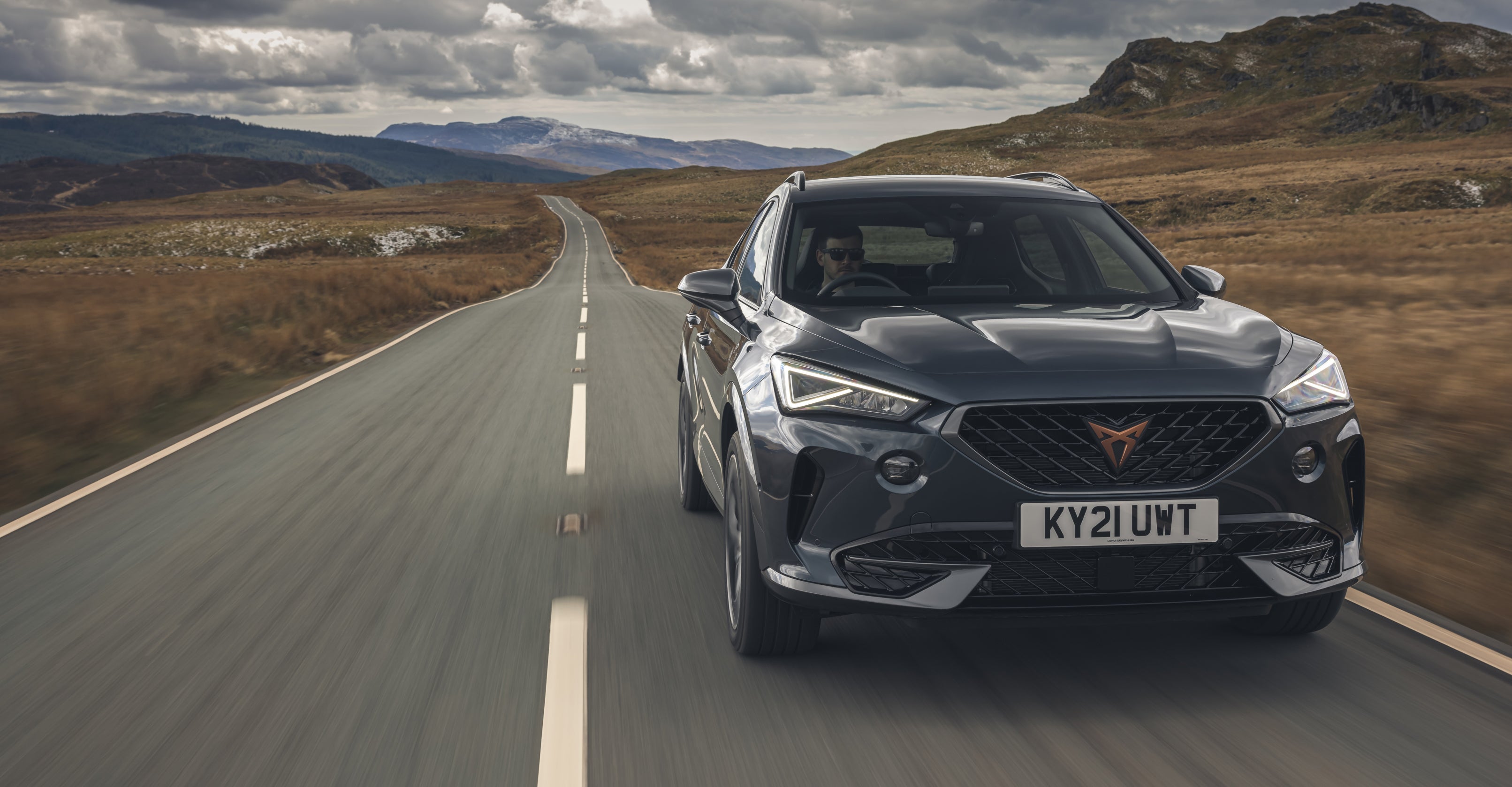Hybrid cars for sale with heycar
Hybrid cars have become a common sight on UK roads – and for good reason. Over the past decade, they've grown in popularity and are now available across a wide range of vehicle types. For drivers who aren’t quite ready to make the leap to full electric, hybrids offer the ideal stepping stone. They help reduce fuel costs and emissions, while still offering the convenience of a petrol engine. You can drive short distances on battery power, without having to rely entirely on the public charging network.
As well as lower running costs, hybrid cars can reduce your road tax (VED) and, for company car drivers, significantly lower your Benefit-in-Kind (BIK) tax liability. From compact hatchbacks to large SUVs, there’s now a hybrid option to suit almost every budget and need. Not sure where to begin? Check out our guide to the best hybrid cars available now.
Why buy a used hybrid car?
The main reason to choose a used hybrid car is to save money – both on fuel and emissions. Hybrids are generally more efficient than traditional petrol engines and avoid the higher emissions associated with diesel models. With lower CO2 output, many hybrids also qualify for cheaper road tax and may be exempt from some city low emission zone charges.
Hybrid cars are also known for being smooth and quiet to drive, with automatic transmissions as standard and regenerative braking that captures energy during deceleration and sends it back to the battery. They tend to be reliable too, particularly models from brands like Toyota, Honda, and Lexus.
There are two key types of hybrid cars: self-charging hybrids (also known as full hybrids) and plug-in hybrids (PHEVs). Self-charging hybrids don’t need to be plugged in and offer better long-distance fuel efficiency. PHEVs have larger batteries and can be charged via a plug, offering up to 50 miles or more of electric-only range. We’ll explain both types in more detail below.
Self-charging hybrid cars explained
A self-charging hybrid (also referred to as a full hybrid) combines an internal combustion engine – usually a petrol one – with an electric motor and a small battery. These systems work together to reduce fuel consumption and emissions, especially in urban settings. A good example is the Toyota Corolla hybrid, which can run in pure electric mode at low speeds, then switches to petrol when needed.
Unlike plug-in hybrids, self-charging hybrids don’t need to be plugged in. Instead, they recharge their batteries using energy recovered during braking (a process known as regenerative braking) and from the petrol engine. This makes them ideal for drivers who don’t have access to a home charger or who don’t want to rely on the public charging network.
Self-charging hybrids are particularly effective in stop-start traffic, where they can frequently switch to battery power. For this reason, the best small hybrid cars are a great choice for town and city driving, or mixed-use routes with lower speeds. However, they’re less efficient at higher speeds – such as on motorways – where the battery assistance is limited, and the engine does most of the work.
What is a PHEV and how does it work?
A plug-in hybrid electric vehicle (PHEV) features a larger battery than a standard hybrid and can be charged from the mains. This allows it to drive much further on electric power alone – often 40-50 miles, with some newer models exceeding 70 miles. If your daily commute falls within that range, you could do most of your driving without using the petrol engine at all.
PHEVs operate in multiple modes. You can run them in electric-only mode, in hybrid mode (where the petrol engine and electric motor work together), or let the car decide the most efficient combination in auto mode. When the battery is depleted, the petrol engine takes over fully, meaning you’re never left stranded.
Plug-in hybrids make perfect sense if you have a short daily drive and somewhere to charge. They offer excellent flexibility: the low running costs of an EV for short trips, and the long-distance capability of a petrol car for weekends or holidays.
Should I buy a PHEV?
You should think about buying a plug-in hybrid if you have a short commute and regular access to a charging point – either at home or work. With their all-electric range, you could get through most of your day-to-day driving without ever using the petrol engine, which means big savings on fuel.
However, PHEVs are less efficient on long motorway drives, especially once the battery is flat. In that case, they operate like a standard petrol car, but with the added weight of a battery pack, which can reduce fuel economy. For high-mileage motorway drivers, a diesel or full hybrid might still make more sense.
How can I charge my PHEV hybrid car?
Charging a plug-in hybrid is relatively straightforward. You can use a standard three-pin plug, which is the slowest method, and takes around 6–7 hours for a full charge.
A home-installed wallbox charger will charge a PHEV much quicker, typically in around 3–4 hours, delivering 7kW of power. Public charging points vary in speed, but many PHEVs can’t use rapid DC chargers, so you’ll be limited to slower AC options.
For most drivers, a home wall charger is the most convenient way to keep a PHEV topped up overnight and ready for the morning commute.
What about mild hybrids?
A mild hybrid is different from a full hybrid or PHEV. In this setup, a small battery and motor assist the engine during acceleration or when restarting after stopping. However, mild hybrids cannot run on electricity alone – they always rely on the petrol or diesel engine.
Mild hybrids improve efficiency and reduce emissions slightly but won’t deliver the fuel savings or electric-only driving of a full hybrid or PHEV.
What are the best makes and models of hybrid car?
The right hybrid car for you depends on the size and type of vehicle you need. If you're after a small self-charging hybrid, the Toyota Yaris and the Honda Jazz are both highly efficient and easy to drive. For family buyers, models like the Toyota Corolla, the Honda CR-V, and the Kia Niro offer more space and strong fuel economy.
Plug-in hybrids are more common in larger vehicles. Popular PHEVs include the Skoda Octavia iV (a great affordable family option), and the Mercedes-Benz C 300 e, which can cover up to 62 miles on electric power alone. Premium SUVs like the Lexus NX, the Kia Sorento, and the BMW X5 also come with plug-in hybrid options, combining luxury with long-distance capability.
Is it better to buy a hybrid or an electric car?
Whether a hybrid or electric car is right for you depends on how and where you drive. If you mainly do short journeys around town and have access to home charging, an electric car might be the ideal solution, give you zero-emission driving and low running costs.
However, if you often travel longer distances, or aren’t quite ready to go fully electric, a hybrid or plug-in hybrid offers a practical compromise. PHEVs in particular give you the benefit of electric power for everyday driving, with a petrol engine ready for longer trips.


















































